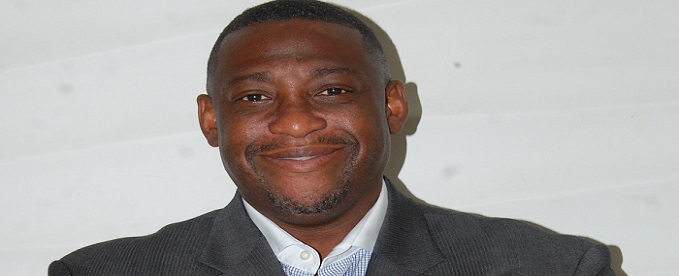Telecom
The 5G Opportunity for Nigeria

By: Eniola Campbell
There has been a lot of talk about 5G, but the reality is that in Africa, many operators are still focusing on 4G to get the most return on investment from the networks. Is this the case in Nigeria?

Eniola Campbell, Country Senior Officer and CBT Head for Nigeria at Nokia
Yes, in Nigeria this is still the case. According to the GSMA, operators in Nigeria have managed to achieve 45% 4G coverage since the launch of the first 4G network in 2016.
This increased 4G coverage has already resulted in improved network download and upload speeds and lower latencies as operators continue to roll out 4G in cities. There are several reasons why the market is lagging in 5G adoption, including cost of infrastructure roll-out, smart phone penetration and affordability.
According to Global Monitor, the Nigeria Telecom Market is expected to continue seeing strong growth over the next 4 – 5 years.
This is mainly due to increased urbanization and the slowly rising adoption of mobile phones that support 3G, 4G and 5G services.
Global Monitor further expects that all the remaining major 2G/3G platforms will be closed by the end of 2025 and forecasts that by 2029 most mobile connections will be on 5G. This is also in support of Nigeria’s 2020-2025 National Broadband Plan, which has set very ambitious targets for Nigerian CSPs.
5G holds a lot of promise for the world, but it requires a huge investment to attain nationwide 5G coverage.
This coupled with the economic impact of COVID-19 in Nigeria will impact the investment case for 5G in Nigeria and the rest of Africa in the short term, thus 3G will remain a viable option due to the lower adoption rate of 4G and the need to have a fallback strategy for rural areas.

Recent developments, however, have seen a big push toward making 5G a reality for the country.
Spectrum for 5G is set to be auctioned in the last quarter of the year and the Federal Government hopes that urban centres in Nigeria will have been 5G enabled by 2025. The Nigeria Communications Commission (NCC) has also submitted a 5G Development Plan (5GDP) to Federal Government for final approval, paving the way for increased momentum in rolling out 5G.
What are some of the key inhibitors in building 4G networks and ultimately making the shift to 5G?
The key inhibitors in building 4G networks include right of way for fiber deployment, the cost associated with network upgrades and limited, albeit growing, smart phone penetration in the market.
These elements will ultimately affect 5G introduction. In addition, the 5G spectrum in Nigeria is still being defined and needs to be allocated in enough contiguous spectrum to allow the value of 5G to be realized in the mid to low frequency bands.
At the beginning of May, the Nigerian Communications Commission did, however, sign a memorandum of understanding (MOU) with NigcomSat, around the use of C-Band spectrum for 5G services, showing a commitment to fast-tracking the roll out of the technology. The Commission highlighted the possibilities that 5G will bring to the economy, including higher connection speeds, mobility, and capacity, as well as low latency capabilities.
What are some of the biggest trends you see in 4G adoption?
There are several big trends that are driving 4G adoption currently. These include continued remote working policies due to COVID-19, an increased use in social media platforms, video-on-demand and streaming services, and eLearning. These have positively impacted 4G adoption and increased demand. On the downside, 4G enables the use of voice-over-IP (VoIP), which becomes a substitute to voice services offered by communications service providers, and this has led to a decline in voice revenue for operators in Nigeria.
How ready is the country to adopt 5G and what are some of the interesting discussions that are emerging around it?
Nigerian market is ripe for 5G adoption. We have already seen commitments by the Ministry for Communication and Digital Economy and the Nigerian Communications Commission through the National Broadband Plan, and the MOU signed with NigcomSat to prioritise pervasive broadband and speed up 5G roll out plans. There is a segment of society, the early adopters, that will see a lot of value with the enhanced mobile broadband and ultra-low latency use cases that 5G will enable. Fixed Wireless Access (FWA) for home broadband users is a key trend that would drive 5G adoption in Nigeria.
Which industries in Nigeria do you foresee will be early adopters of 5G and what are some of the use cases you expect to see emerging?
5G as a technology will enable high download speeds and low-latency applications. These are important for remote learning, media, medical, public safety (citywide surveillance) and manufacturing industries. We believe the early adopters will majorly be the media industry especially streaming and video-on-demand service providers.5G will also be a key driver in developing smart cities in Nigeria as it provides a high-performance network foundation and robust city-grade platforms to bring together the intelligence within smart city applications and services to fuel economic and social growth in cities.
What are some of the most recent enhancements that Nokia has made to its product portfolio?
Nokia recently announced some enhancements to our mobile network portfolio that will enable CSPs to offer superior services to their subscribers while lowering their overall total cost of ownership. Some of these include the industries lightest 32×32 TRX massive MIMO radio at 17kg, O-RAN support of RF products and the widest Instantaneous Bandwidth (IBW) of 400 MHz in the market. It also includes high-capacity baseband called ABIO that supports 90,000 connected users.
To reduce time to rollout, while ensuring optimal performance of cell sites, we have introduced Nokia Digital Deploy and best-in-class 5G/NR RF planning and optimization services and tools.
From a transport infrastructure perspective, Nokia’s integrated IP/optical solution combines high performance 7750 Service Routers with high capacity 1830 Photonic Service Switches and network automation improve response times. It also reduces service delivery times so that customers can always operate at full speed, growing and scaling up connectivity as needed.
Our optical portfolio is powered by Nokia in-house, advanced chipsets (Photonic Service Engine) that can transmit high-capacity optical signals of up to 800 Gbps over long distances. Nokia’s industry-leading edge routing portfolio provides the scale, performance, and extensive service capabilities that our customers need to keep pace with evolving network demands. Featuring the breakthrough in-house-designed router silicon innovations, our proven Service Router Operating System (SR OS) enables software and multi-vendor systems integration capabilities.
To address the rising demand for home broadband, the Nokia GPON, XGS and 25G PON products are powered by the Nokia Quillion chipset to enhance capacity and performance of the network. In addition, Nokia Fixed Wireless Access products, Nokia Residential Gateway and Indoor CPE have been designed for optimal performance to unlock value to home broadband customers in a secure manner.
The complexity of modern networks has introduced new security requirements and to address this Nokia has released NetGuard XDR Security Operations to extended detection and response (XDR), which natively integrates multiple security products into a cohesive security operations system. XDR provides overarching security lifecycle management that orchestrates and automates risk and threat prediction, detection, and response, with threat intelligence tailored to a CSP’s unique requirements.
– Campbell is Country Senior Officer and CBT Head for Nigeria at Nokia
Telecom
Glo Unveils Immersive Gaming Experience, Travel Saga

With the introduction of Travel Saga, a premium, fast-paced gaming experience that is currently live and accessible to customers on its network, Globacom has lifted the bar for mobile entertainment in the country.

Travel Saga is a story-driven, intricately connected role-playing game designed to provide the thrill, complexity, and competitive intensity of some of the most well-known action games in the world.
The game, which has been painstakingly optimized for mobile devices, redefines mobile gaming as a full-fledged digital battlefield by translating a console-grade experience onto data-enabled handsets.
Fundamentally, Travel Saga takes users on quick virtual journeys against recognizable international landscapes. In a dynamic, ever-evolving gaming environment, players are thrown into furious missions, fierce fights, and ever-expanding tales where talent, strategy, and endurance determine who rises through the ranks to become a true war hero.
In addition to the excitement of fighting, users are encouraged to go to various locations, take part in thrilling challenges, and participate in intense competition for in-app rewards like points and victory badges. With each encounter and accomplishment, the immersion increases with each level, maintaining momentum and excitement.
Flexible subscription plans with one-time or auto-renewal choices are available to subscribers for the service, which costs ₦100 per day and ₦250 per week. By dialing *70021#, customers can quickly subscribe and gain instant access to the action.
With Travel Saga, Glo reaffirms its dedication to innovation and high-end digital experiences, making top-notch gaming easily accessible to its customers. The game offers uninterrupted action, adventure, and competition, all smoothly supported by the Glo network.
Telecom
SHELT Named in Prestigious 2025 MSSP 250 List for Cybersecurity Excellence

SHELT, a leading cybersecurity-as-a-service provider, has earned inclusion in the 2025 MSSP 250, the annual ranking of the world’s top 250 Managed Security Service Providers (MSSPs) by MSSP Alert, a CyberRisk Alliance publication.

SHELT
The list evaluates firms on business performance, service breadth, and industry impact, spotlighting those excelling in growth, operational excellence, and advanced managed security amid rising cyber threats. Selection criteria include annual recurring revenue, profitability, workforce expansion, business growth, and the depth of managed security offerings.
SHELT’s recognition underscores its investments in scalable security operations, threat intelligence, and tailored managed services across multiple regions, enabling clients to navigate complex risk landscapes effectively.
“Being recognised in the MSSP 250 is a meaningful milestone for our team,” stated Youssef Abillama, CEO of SHELT. “It validates our focus on building practical, resilient security services that help organisations manage risk and respond effectively to today’s evolving cyber threats.”
The company hailed the honour as testament to its teams’ dedication and expertise worldwide, reaffirming commitment to enhancing capabilities and delivering trusted cybersecurity solutions.
Telecom
Meta Names Ex-Trump Adviser Dina Powell McCormick as President

Meta Platforms, owner of Facebook, has appointed Dina Powell McCormick, a former adviser to President Donald Trump, as its new president and vice chairman, bolstering its leadership amid aggressive AI and infrastructure expansion.

Dina Powell McCormick
The announcement, made on Monday, positions Powell McCormick – who recently stepped down from Meta’s board after eight months – to guide overall strategy, including multi-billion-dollar investments in data centres and global partnerships.
A Goldman Sachs veteran with 16 years in senior roles and prior stints as deputy national security adviser under Trump and in the Bush administration, she brings deep finance and international ties to the role.
Meta CEO Mark Zuckerberg hailed her as “uniquely qualified” for the company’s next growth phase, while President Trump praised the move on Truth Social as a “fantastic choice”.
The hire signals Meta’s efforts to strengthen White House relations, following recent dinners with Trump and U.S. investment pledges worth hundreds of billions

 E-Financial3 days ago
E-Financial3 days agoWema Bank Upgrades ALAT Banking App

 General News3 days ago
General News3 days agoFirm Launches AI-powered Platform to Simplify New Tax Laws

 Telecom3 days ago
Telecom3 days agoX Suspends Twitter Account for Rules Violation

 E-Business3 days ago
E-Business3 days agoStudy Reveals 88.5% of Phishing Attacks Focus on Stealing Account Credentials

 General News2 days ago
General News2 days agoPalmPay, Premier Cool to Reward 10,000 Nigerians with ₦100m in “10k for 10k Campaign”

 News2 days ago
News2 days agoNigeria, Others Lag Behind as Egypt Tops Africa in AI Readiness

 E-Financial2 days ago
E-Financial2 days agoEcobank Joins Trillion-naira Club for the First Time in 20 Years

 E-Business2 days ago
E-Business2 days agoKaspersky Warns Telecom Threats from 2025 will Carry into 2026 as New Technology Adds New Risk



























